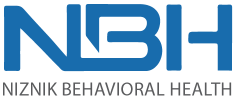Parenting in Recovery: Breaking the Generational Cycle of Substance Abuse
Substance abuse and addiction can have long-lasting, rippling effects, especially in children exposed to drug and alcohol abuse in the home. Studies show relatives of people with alcohol abuse disorders are three times as likely to also abuse alcohol and two times as likely to abuse other illicit substances. Children are especially susceptible when it comes to substance abuse in the home and adult influences.
If you are a parent who has experienced addiction firsthand, preventing your children from following the same path is likely your top priority. Don’t let fear or shame keep you from protecting your teen’s future. Here’s how you can break the generational cycle of substance abuse in your family:
Be HONEST
No parent wants to talk to their child about their own mistakes, but when it comes to drug and alcohol abuse, that honestly can be a life saver. Explain your own experience with addiction in an age-appropriate way. Hearing about how addiction affected someone they know personally is more impactful than just giving facts and statistics.
If your battle with substance abuse affected your ability to parent during active addiction, be sure to own that part of your story as well. Addiction affects all those involved, and opening that part of the conversation can prevent your teen from travelling the same harmful path. Doing so with the guidance of a family counselor or therapist can help in addressing underlying family issues, helping to repair bonds and re-establish trust.
Be CONSISTENT
Parenting isn’t a part-time job. Being consistently present as a positive influence in your child’s life can help prevent them from falling victim to nefarious external influences. Youthful drug and alcohol abuse typically stems from an attempt to escape difficult emotions and heal unseen pains. While peer pressure may also be a factor in initial use, habitual substance abuse is more often a symptom of deeper rooted mental and emotional distress.
Beyond simply being resent, fostering a proactive relationship with your child is also key to substance abuse prevention efforts. Keep the channels of communication open and judgement-free. As someone who knows the struggles of addiction personally, you understand its intricacies and how difficult it can be to be open about that which lies at its root. Be the safe space for your child to be honest so they don’t have to seek that comfort elsewhere.
Be PATIENT
We all know adolescence is a challenging period for both parents and teens. Understand that this transformative time for in your child’s life will come with hiccups, stumbles, and mistakes. While we all want better for our children, it’s important not to forget they are also human. Be the person you needed when you were their age. Offer guidance and be prepared to provide support and comfort as they grow and explore the world around them. If your child does turn to drugs or alcohol, early intervention can prevent years of undue suffering.
For help and resources regarding teen substance abuse and behavioral health services, visit www.safelandingrecovery.com.

